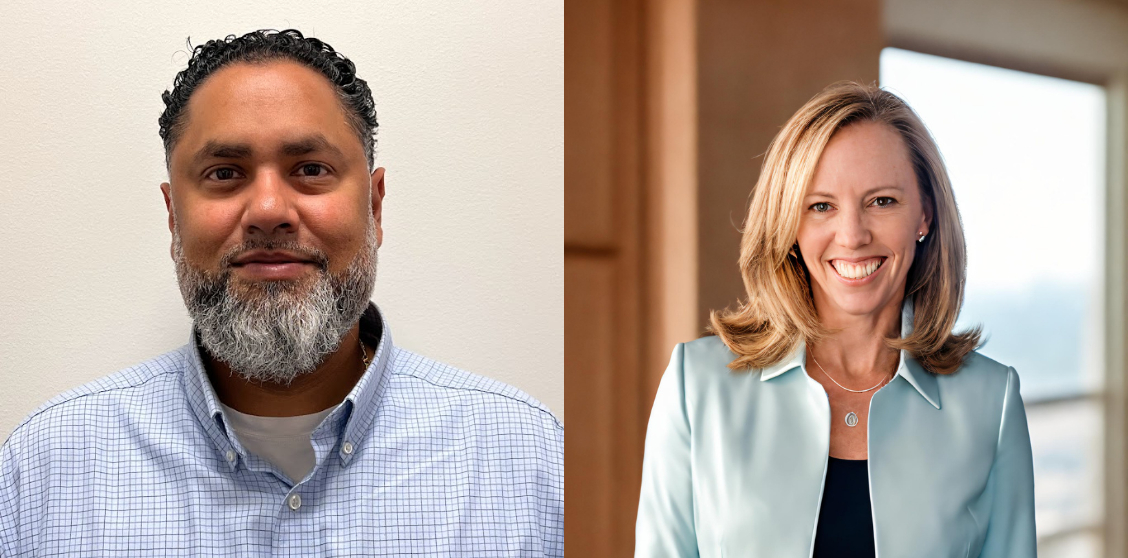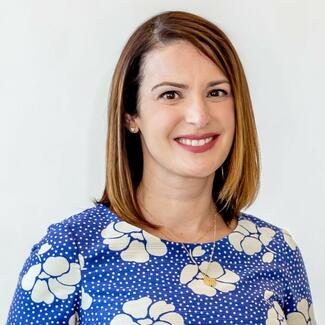Loneliness, Adherence, and the Power of Human Connection in Specialty Pharmacy
A new collaboration between Pleio and Gentry Health Services leverages peer-to-patient support to address emotional barriers in the specialty medication journey—boosting adherence, improving patient experience, and delivering measurable results.
Please introduce yourself by stating your name, title, and any relevant clinical experience.
 Jennifer Butler: Hi, I'm Jen Butler. I'm chief commercial officer at Pleio. I've been at Pleio for about 2 years, working in expanding our core services of the peer-to-patient platform into new markets such as specialty, which is what we're going to talk about today. I've been in the digital health space for over 10 years, focusing on patient engagement specifically.
Jennifer Butler: Hi, I'm Jen Butler. I'm chief commercial officer at Pleio. I've been at Pleio for about 2 years, working in expanding our core services of the peer-to-patient platform into new markets such as specialty, which is what we're going to talk about today. I've been in the digital health space for over 10 years, focusing on patient engagement specifically.
Nimesh Patel, RPh, MBA: Hi, I'm Nimesh Patel. I'm the chief operating officer here at Gentry Health Services. I'm a pharmacist by trade. I've been in the industry for a little over 25 years. I started Gentry Health back in 2014, and we have been growing ever since. I'm excited to be here you to talk about our relationship with Pleio.
What does the patient journey look like from the moment they are prescribed a specialty medication to being connected with a peer through your platform?
Butler: What we've created with this partnership is introducing the peer-to-patient platform into the specialty pharmacy onboarding process. By adding in our GoodStart program, we're creating wraparound support for patients to address emotional barriers that patients often encounter when they're taking on a new diagnosis of a chronic condition and, for the first time, experiencing accessing a medication through a specialty pharmacy. It all can be overwhelming.
Specialty pharmacies have a brilliant process in place for getting medications to patients, but the fact is that patients also have emotions that get in the way and can be overwhelming. You're taking a very rational process and, when you add emotions into it, you have emotional decision-making. Our peer-to-patient platform is supporting the patients from the intake received at the pharmacy of their prescription. We reach out on behalf of the specialty pharmacy and introduce them to the specialty pharmacy, letting them know that their prescription has been received.
It puts them at ease that there's somebody who is going to hold their hand and let them know that the doctor had sent the script over, it has been received, and this is a complicated process, but we're going to go through it together. It also helps to explain that there are many teams involved to support the patient and that there will be handoffs, but there are reasons for the handoffs. I want to underscore taking time with a patient to be able to educate them and to prepare them for what's to come.
When a patient is overwhelmed, part of it is not knowing what to expect. We're trying to reduce that anxiety and provide them with knowledge of what that process looks like. As soon as that script hits, we're on it, and then we do the handoff to the specialty pharmacies, such as Gentry, and let their teams take the process with the patient to get them the medication.
We'll check back in after the medication has been dispensed to the patient to see how the patient is, check in emotionally, listen to the patient, understand their concerns, and direct them to resources or to the counseling opportunities with the pharmacists at Gentry. This will go on for several check-ins to make sure that the patients are comfortable.
Patel: In the beginning, it’s very fast-paced for these patients. There are appointments, lab checkups, x-rays, and different tests. There are a lot of different caretakers coming at those patients at the same time. This relationship that we've built together is helping the patient to slow the process down, understand it, and get their arms around it.
You’ve seen an 80%+ increase in total average fills and a 65% increase in patient volume—can you elaborate on what’s driving these improvements and how they reflect patient engagement with the platform?
Patel: It's all about finding the right balance. Our organization here at Gentry Health is equipped with folks that are navigating the insurance portion in helping the patient get coverage and access to their medications. Over time, that can become a little bit of a stressful communication with the patient because there is anxiety around whether they are going to get their medication covered and what the out-of-pocket cost will be. We need to give patients time to ask their questions. At the end of the day, a lot of these specialty medications are for disease states that are long-term. Rarely does a medication cause a cure. Taking the medication on time, on a regular basis, as directed by the prescriber is extremely important, and helping to engage that patient to get on that track is our paramount task.
Butler: When we came together to talk about this program, over a year ago, we were setting up measurements and looking at measuring proportion of days covered (PDC) and total average fills. We looked at not just our program, but also at comparables to the brand. The market basket, if you will.
We saw that both the pre and post was the improvement that you mentioned with 80% increase. We went from 2 average fills per patient to 3.69 average fills per patient after the program, but the average market basket was at 3. We even increased it over the market basket. It sounds like such an easy, nice thing to do support humans with humans, but it really has a significant impact that we were blown away by.
What feedback have you received from payers or manufacturers about the value of peer-to-patient support in the specialty space?
Patel: For manufacturers, what they look for in specialty pharmacies, such as us, is not only the speed at which we can get a patient onto therapy, but how long we retain them on therapy, because that's when you're going to see the best clinical outcomes. That's what we're hearing from manufacturers. It's an important piece of their puzzle.
They are always looking for the latest and greatest ways to engage patients. At the end of the day, that's what helps these manufacturers show more data, more clinical response, more clinical outcomes that are better for their product. It's been a good result that we've seen from this program.
Butler: For manufacturers, having peer-to-patient support is helping them control the information as well, so that when patients have questions, the information that we're providing has been approved through medical, legal, and regulatory (MLR) review. It's been validated. It's clinically sound.
Patients aren't running to wherever they want to go in the social media world to find answers that might not be validated. That's another angle of having the peer-to-patient support or conversations with vetted information that is accurate and supportive.
Through the connection with Gentry, if there are any questions that come up and arise further, we get them to the pharmacist when needed to provide further counseling.
What advice would you offer to health systems or pharmacies looking to integrate more human-centered, empathetic support into the patient journey?
Patel: It's really important that everything is built around the patient experience and patient engagement aspect of treatment. If the patient is engaged and informed, that means they feel supported and you're going to have the best possible clinical outcome. We've learned through our pilot program with Pleio that there is an emotional component. There is a component for loneliness that needs to be addressed. I would strongly suggest other pharmacies look at opportunities like this to engage their patients on a more peer-to-peer, human basis. There's value there.
Butler: That is spot on. To add to that, in the world of digital technology and digital health that's increasing connectivity, we're still faced with a loneliness factor and emotions that need to be addressed with human connections.
We just released a study that showed that for patients who have 1 chronic condition and have experienced loneliness, 74% responded that their loneliness was impacting their daily activities. It was even more prevalent that over half said that it was impeding their ability to stay on their medication routines. That rose to 70% for specialty medications.
That's showing that even though we're connected, there's still something in us that needs that human connection to be heard and supported. You can't ignore the power of human connection. There is certainly power in digital and scalability, but when it comes to supporting patients you need to have that human, peer-to-patient support.
For advice to pharmacies, it's simple to be human and you don't want to overcomplicate or add any additional workflows to a very sound process. Make sure it fits for the pharmacy and for the patient's experience as well.














